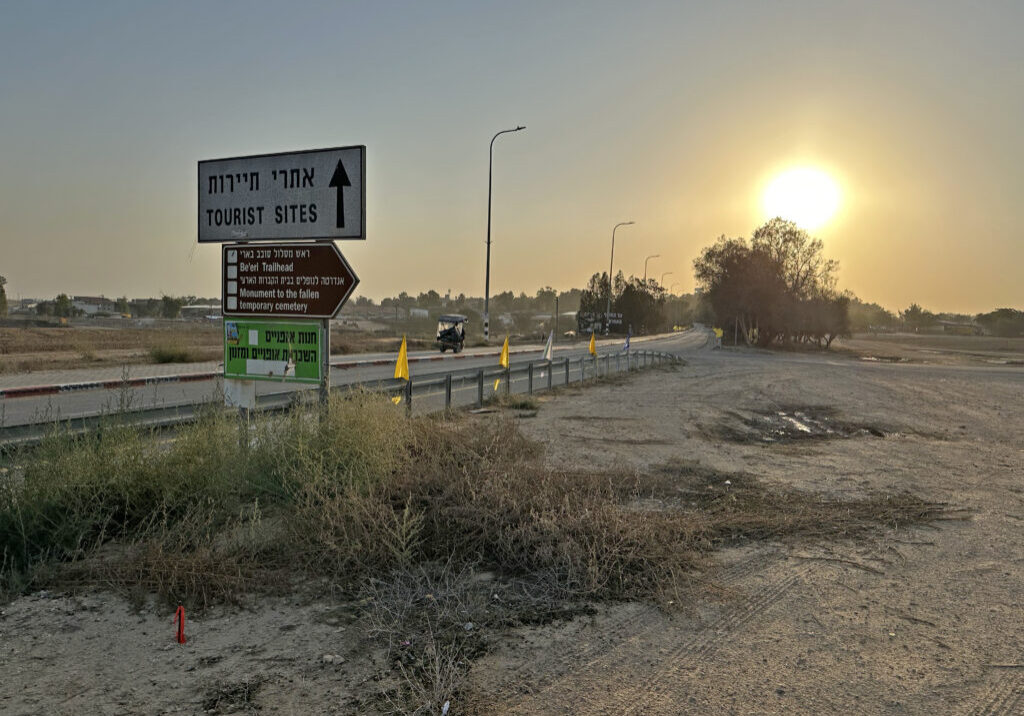Australia/Israel Review
Back to the Table
Jul 30, 2013 | Amotz Asa-El

Two decades after the signing of the Oslo Accords, and half a decade after they last discussed peace, Israel and the Palestinian Authority (PA) agreed to resume negotiations for a final-status agreement on July 19.
The deal, which followed US Secretary of State John Kerry’s hectic shuttling between Jerusalem, Ramallah, and Amman, is an accomplishment for him, but for the protagonists themselves it is fraught with uncertainty, acrimony and risk.
The uncertainty is first of all over the deal’s very terms.
At one point during Kerry’s shuttles, reports claimed Israeli Prime Minister Binyamin Netanyahu had agreed to negotiate “based on a return to the ’67 borders” between Israel and Jordan, in turn for Palestinian Authority President Mahmoud Abbas’s acquiescence to “border adjustments” and land swaps, as well as acceptance of Israel’s character as a Jewish state.
These reports were soon denied by all parties. Israeli ministers said Jerusalem’s demand to negotiate with no preconditions was met. Then again, while the Palestinians failed to obtain an acknowledged freeze of all construction in the West Bank – though there is already an unofficial freeze on almost all new construction – their demand for the release of prisoners is reportedly going to be partially met. “Some prisoners will be released after the negotiations commence and as they progress,” said Minister for Strategic Affairs Yuval Steinitz. The prisoners at stake are serving life sentences after having murdered civilians more than 20 years ago.
Negotiating teams led by Israeli Justice Minister Tzipi Livni and Palestinian lawmaker Saeb Erekat were reportedly planning to meet in Washington in late July, and thus kick off talks that are expected to be difficult and protracted, if they ever get to the starting gate.
At the same time, the negotiations appear to reveal a reconstructed Netanyahu, a lifelong hawk who has taken a strategic decision to strike a deal.
“We must prevent the emergence of a bi-national state between the Jordan and the sea,” explained Netanyahu after Kerry’s announcement, adding that at the same time the negotiations will have to prevent the emergence for a “terror state” along Israel’s border.
Netanyahu has sounded the bi-nationalist theme several times recently, thus resorting to a demographic argumentation that once was the lot of his opponents, and which he used to disparage, citing high birthrates among Israeli Jews. Now, however, Netanyahu is believed to suspect that the growing threat to Israel’s legitimacy has come to constitute a strategic threat, while regional developments have come to offer strategic opportunities.
On the Palestinian side, Abbas found himself between a rock and a hard place.
On the one hand, most of his advisers and ministers opposed the renewal of talks, citing their lack of trust in the Israeli Government. Beyond them, Abbas had to consider his nemesis Hamas’ hostility to any deal with Israel, least of all a final-status agreement of the sort Washington is seeking. That, indeed, is why he refused to enter into significant talks even after Netanyahu accepted the idea of a Palestinian state, and also after he temporarily froze construction in the West Bank in 2009, a gesture that no previous Israeli government had made.
At the same time, Abbas had to consider pressure from Washington, and American control over the funds he needs if he is to maintain a sense of stability and growth in the West Bank.
More interestingly, a rare Arab League statement that empowered the Palestinian leader to accept Kerry’s formula for renewed talks, added either pressure, or – in an alternative interpretation – provided a ladder that Abbas arranged for himself in order to climb down from his repeatedly announced preconditions that Israel accept the ’67 borders, freeze all construction, and release prisoners.
Meanwhile, south of the hills outside Abbas’ office in Ramallah, Netanyahu’s right-wing allies were preparing for political battle.
Economy Minister Naftali Bennett, leader of the Jewish Home party which represents the West Bank settlers amongst other groups, said flatly that his party will bolt from the coalition should the Government enter into talks based on the ’67 lines. “We will not sit in such a government even for one second,” he declared.
Netanyahu’s suspected flexibility has also raised even more challenging resistance from within his Likud party. For instance, Brig.-Gen. (res.) Miri Regev, the former IDF Spokesperson, said a decision to negotiate based on the ’67 borders “would risk state security and hurt the settlements and the settlers.”
This view is shared by many within Netanyahu’s already slim, 31-member Knesset faction, most notably by deputy Defence Minister Danny Danon and deputy Foreign Minister Zeev Elkin.
For now, this opposition-from-within is avoiding any large-scale mutiny – praising Netanyahu for having arrived at the talks without agreeing to any preconditions. However, should negotiations gain momentum and significant concessions become public, it is clear that Netanyahu will face serious resistance from the right that will in due course likely see thousands taking to the streets.
If indeed Netanyahu is to veer left – the way many hawkish Israeli leaders, from Shimon Peres to Yizhak Rabin to Ariel Sharon, have done over the years – he could cover Bennett’s departure from the coalition by replacing his faction with Labor. Labor leader Shelly Yachimovich has already said she would support a prospective deal between Netanyahu and Abbas. Moreover, a deal would automatically break the alliance between centrist Finance Minister Yair Lapid and the modern-Orthodox Bennett – a duo whose charisma, youth and worldliness led to a political axis which has been a thorn in Netanyahu’s side.
Netanyahu cannot, however, afford a fracturing of his own Likud Beitenu party, a scenario that could result in his removal from power by his own party (a scenario a couple of recent Australian Prime Ministers might be familiar with). That is also why the unfolding circumstances bolster the leverage of Avigdor Lieberman, the former foreign minister and current Chairman of the Knesset Defence and Foreign Affairs Committee.
Lieberman, who currently holds no cabinet position because he is facing trial concerning alleged breach of trust, is Netanyahu’s Number Two within Likud Beitenu. Should Netanyahu hatch a deal that Lieberman opposes, the Prime Minister’s faction will split and his leadership will be at serious risk. Conversely, if Lieberman backs a deal and gets it through cabinet, he will be in a position to demand virtually anything he wants as a political reward.
Knowing all this full well, Netanyahu pulled an unexpected ace out his sleeve: a referendum. “Any agreement will be brought to a referendum,” he told the cabinet, thus telling all the politicians that if pushed with his back to the wall he might go to the people above their heads, and potentially turn their parliamentary advantage into colossal defeat.
Referenda are an enigma for Israeli politicians. Ariel Sharon held a referendum among Likud members prior to his retreat from Gaza, lost it, then ignored the results and created a new political party to back up his agenda. Otherwise, Israel has never held a referendum on anything, and holding one will require the passage of special legislation. Even so, chances are good both sides will agree about the utility of a referendum – with Abbas saying he will hold one as well.
Hovering above these dyamics will be the broader Middle East drama. With uncertainty rocking the entire region, from Cairo to Damascus and from Teheran to Istanbul, both Abbas and Netanyahu see many dark clouds, but also some silver-linings.
The risks Netanyahu must consider, besides an erosion of Israel’s Jewish character and growing international pressure in its wake, include an emboldened Bashar al- Assad and Hassan Nasrallah stirring trouble along the northern border; an Islamist coup in Jordan; and terror attacks from Sinai and Gaza. This is all on top of Iran’s steadily maturing nuclear threat.
Abbas, for his part, has to consider the prospect of unrest elsewhere in the region unsettling his own people, some of whom may want to see him go the way of other fallen Arab leaders. An agreement with Israel will generate substantial American aid to the West Bank’s economy, which in turn will likely foster prosperity and, hopefully, stability.
Much more significantly, an Israeli-Palestinian deal at this time will likely be joined by Saudi Arabia and the Arab League, thus paving the road to a de-facto peace between Israel and the Sunni world, and shrinking the conflict’s scope to the non-Sunni axis that runs from Teheran through Damascus to Beirut.
Such a reconfiguration would also put Iran on the defensive in a way it has not been at any point since the Islamist republic’s emergence 34 years ago.
Israel’s leading political scientist, Shlomo Avineri, once divided Israeli hawks into two categories: the ideological and the strategic. The former were often, one way or another, messianic, and as such incapable of accepting most territorial compromises regardless of strategic, military or economic rationales. Strategic hawks, by contrast, opposed territorial compromises only as long as they were seen as threatening Israel’s security. (Sharon and Rabin appear to have been the latter, while former Prime Minister Yitzhak Shamir appears to have been the former, based on their public statements and behaviour in office.)
The jury is still out concerning Netanyahu’s identity in this regard – but a verdict looks like it may soon be on the way.
Tags: Israel






